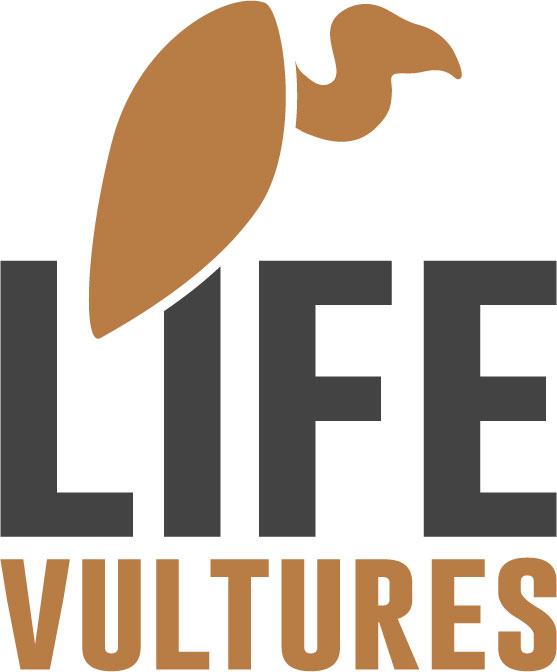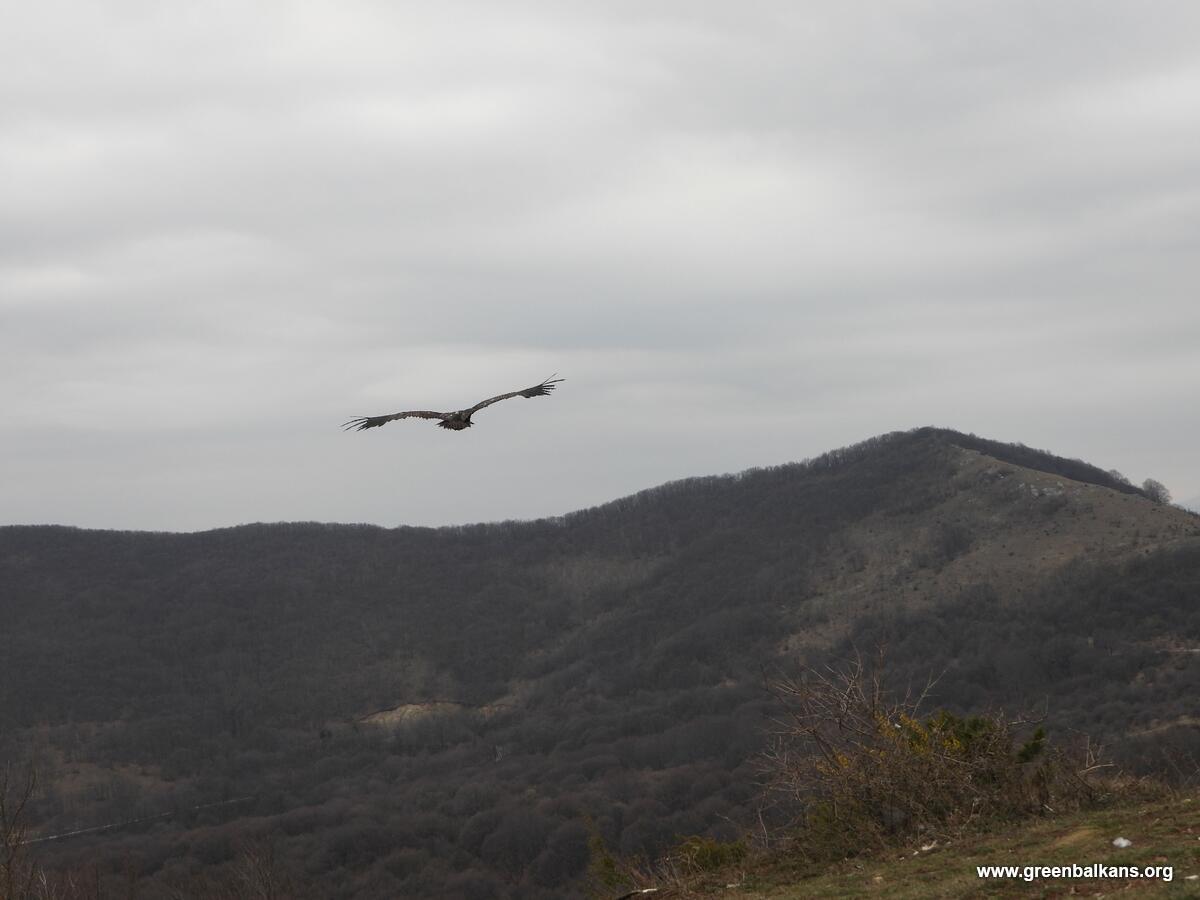
Four years ago, as a pilot measure led by BSPB within the LIFE RE-Vultures project, which conserves Griffon and Cinereous Vultures in Bulgaria, the first anti-poisoning dog unit (APDU) to combat poisonous baits in Bulgaria was established. The goal was to apply successful international experience using specially trained tracking dogs to track and locate poisons, poison baits and dead animals. The team also played a key role in helping competent authorities in investigating such serious crimes against nature.
Actions and results
In the autumn of 2016, after receiving official training in Hungary, Nikolay Terziev and his four-legged colleague, Bars the German Shepard, got to work. So far, the teams carried out more than 150 searches and patrols, finding more than 300 animal remains, not all associated with poisoning incidents. Most often, the animal died from other causes, including predation, electrocution, shooting or natural causes. The APDU travelled up to 1,200km while scouring various parts of the country, but most (80%) were in the Eastern Rhodopes, an important area for birds of prey in the Balkans. The APDU found 57 poisoned animals. However, 17 of these were rodents found dead in crop fields after treatment with rodenticides. They detected 40 illegally poisoned animals from 11 different species, confirming the non-selective nature of poisonous baits and many “indirect” victims. More specifically, 7 were vultures (Griffon Vultures and Egyptian Vultures), comprising 17.5% of all animals found. The most common victims were wolves and domestic dogs, comprising 22.5% and 20% respectively of all poisoned animals found.

Poisoning is a big problem
The team’s work proved that in Bulgarian, as in many countries, the main causes of the crime of illegal wildlife poisoning are driven from human-human and human-predator conflicts. Catching the perpetrators poses a big challenge for Bulgaria. Carbofuran and Methomyl were identified as the main poison substances used in the investigated cases. Even though such substances are prohibited for commercial sales, restricting access to them is another big challenge since several toxic substances are illegally imported and fall into the wrong hands. Sadly, all of the eight poisoning cases where a police investigation launched were terminated due to lack of evidences or suspects, leaving the preparators unpunished for the serious crimes.
Recommendations for future work
The APDU’s work has proven to be an effective measure for locating and investigating poisonous incidents in the wild. However, resolving the problem requires serious additional efforts and commitment on the part of all responsible institutions in view of the shortcomings that exist in the investigation of these cases, so the project team makes these recommendations for future work:
- Develop and adopt a National Anti-poison Plan as a frame of all foreseen anti-poison actions in Bulgaria. The development of the Plan has already started in 2019 but yet it has not been adopted by the Ministry of Environment and Waters.
- Increase the number of APDUs in Bulgaria. This can be achieved by involving the police, other authorities and NGOs in the establishment of dog units and their operation. Dog trainers from the Bulgarian police can receive additional training in Hungary or Spain and start training anti-poison sniffing dogs in Bulgaria. The establishment of APDUs within the police has the potential to increase their efficiency in investigating poison cases and collecting evidences. Furthermore, this would ensure the sustainability of the anti-poison activities in the long term. NGOs may support evidence collection through the GPS data from tagged vultures and raptors and create an early warning system against poisons.
- The country can be divided into poisoning sensitive zones depending on the distribution of vultures and other protected species which are directly affected by the illegal use of poison. At least one APDU can be established and operates in each zone.
- Increase the capacity of the accredited labs to timely conduct quantitative and qualitative toxicological analyses in order to determine the exact substances used.
- Continue and further improve the trans-border cooperation in cases of poisoning. Keep in touch with the APDUs operating in Greece. In some cases vultures are poisoned on one side of the border but eventually die on the other side so the good collaboration between the established APDUs both in Bulgaria and Greece is essential.
More details about the work of the APDU is available in the report “Anti-poison dog unit operation in Bulgaria”.
LIFE RE-Vultures

Starting in 2016, the five-year LIFE RE-Vultures project was developed by Rewilding Europe, in collaboration with the Rewilding Rhodopes Foundation the Bulgarian Society for the Protection of Birds, WWF Greece, the Hellenic Ornithological Society and us here at the Vulture Conservation Foundation. The aim of the project is to support the recovery and further expansion of the populations of Cinereous and Griffon Vultures in the cross-border region of the Rhodope Mountain by improving natural prey availability, monitoring movements of birds to help understand the threats they face and carrying out activities that will reduce the mortality of the populations from threats such as illegal wildlife poisoning and collisions with electricity infrastructure.




